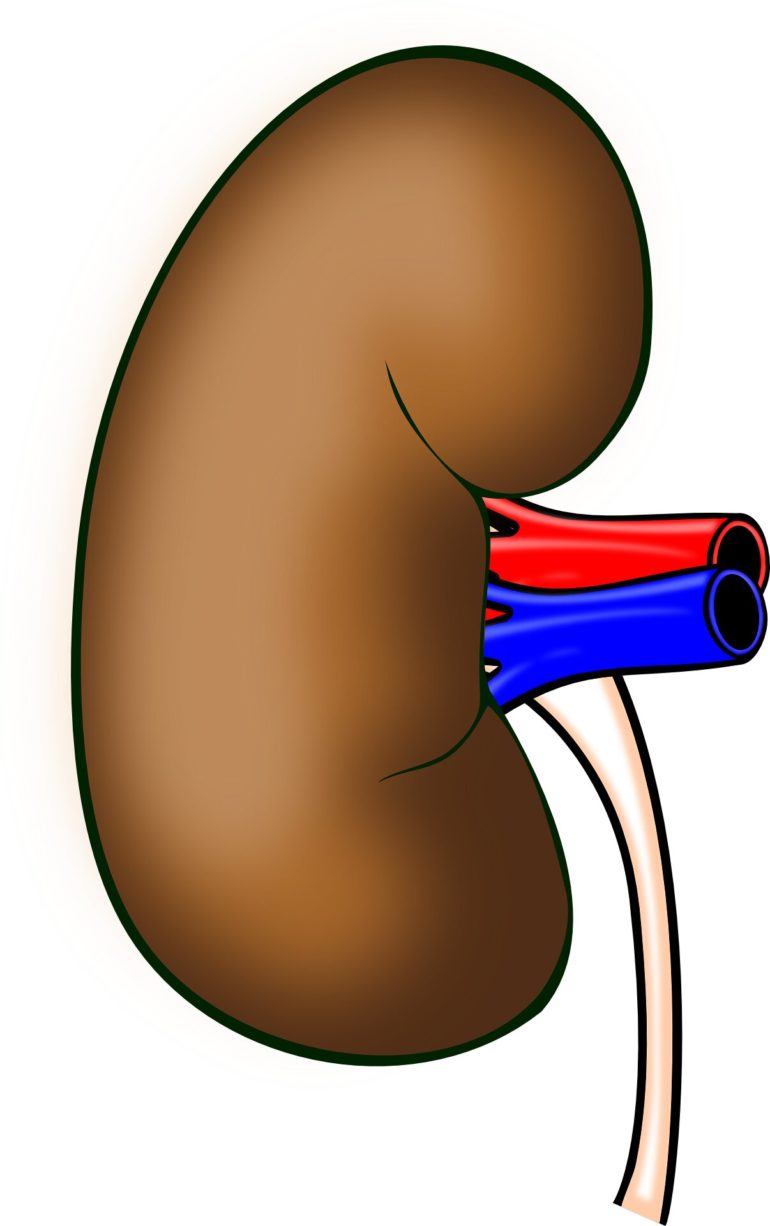When kidneys are removed from deceased organ donors in the United States, they are often subjected to “procurement biopsies” and are discarded if certain abnormalities are seen in the kidney tissue—a practice that worsens the already-severe shortage of transplant-eligible kidneys in the country. However, a large portion of the discarded kidneys would function acceptably if transplanted, according to a new study from a team led by researchers in the Perelman School of Medicine at the University of Pennsylvania and the Paris Translational Research Center for Organ Transplantation.
In the study, published today in the Journal of the American Society of Nephrology, the researchers analyzed biopsy data on a series of 1,103 kidneys discarded in the U.S. between 2015 and 2016. They found that 493 of these kidneys could be matched, in terms of biopsy-evaluated quality and other donor characteristics, to 493 kidneys that were actually transplanted in France, where transplant practice is less restrictive.
The researchers then examined the performance of these 493 kidneys transplanted in France, and found that their survival rates were acceptable—93 percent at one year, 81 percent at five years, and 69 percent at 10 years—indicating that many donor kidneys in the U.S. are being discarded unnecessarily.
Analyzing a larger set of kidney transplants in France for which biopsy data were available, the researchers concluded that the biopsy data added no value in terms of making predictions of transplant failure more accurate.
“These results highlight a lost transplant opportunity in the U.S., and provide a strong rationale for organ procurement organizations to reduce the practice of obtaining biopsies of deceased donor kidneys,” said study lead author Peter Reese, MD, MSCE, an associate professor of Renal-Electrolyte & Hypertension and Epidemiology in the Perelman School of Medicine at the University of Pennsylvania and a kidney transplant physician at the Penn Transplant Center.
The study was a collaboration involving several medical centers in the U.S., France, and Belgium, co-led by Olivier Aubert, MD, Ph.D. and corresponding author Alexandre Loupy, MD, Ph.D., of the Paris Translational Research Center for Organ Transplantation.
The shortage of kidneys for transplantation continues to be a public health crisis in the U.S. More than 90,000 patients are waiting for kidney transplants, yet only about 20,000 transplants are performed each year. Annually, nearly 5,000 people on the transplant waiting list die without getting a transplant.
Deceased donors provide roughly two-thirds of transplanted kidneys, but thousands of deceased-donor kidneys are discarded annually in the U.S., due to abnormalities seen in procurement biopsies. Studies suggest that most discards are due to a finding of substantial glomerulosclerosis, a condition that can be caused by age or diabetes, for example, and involves the scarring of small blood vessels in the kidney. However, research also suggests that the reproducibility of procurement biopsy findings is poor.
Moreover, kidney transplants in several European countries are usually done without procurement biopsies and are therefore less likely to be discarded. A study published last year by the same research team found that French transplant centers are much more likely that U.S. centers to accept kidneys from older deceased donors. In fact, the average age of French deceased donors is more than 15 years older than deceased kidney donors in the U.S.
The findings from this new study underscore the notion that pre-transplant biopsies don’t seem to add value to the kidney transplant process, and in fact tend to make things worse by reducing the supply of kidneys that could benefit recipients.
“Transplant center staff should understand that procurement biopsy results only contribute limited meaningful information about kidney quality,” Reese said. “In some cases, those biopsies may add bad information. And unfortunately, those biopsies come at a cost—in terms of delays, dollars and occasionally, complications.”
Method for determining donor kidneys’ suitability for transplantation may be flawed
More information:
Journal of the American Society of Nephrology (2020). DOI: 10.1681/ASN.2020040464
Provided by
Perelman School of Medicine at the University of Pennsylvania
Citation:
Too many donor kidneys are discarded in U.S. before transplantation (2020, December 15)
retrieved 15 December 2020
from https://medicalxpress.com/news/2020-12-donor-kidneys-discarded-transplantation.html
This document is subject to copyright. Apart from any fair dealing for the purpose of private study or research, no
part may be reproduced without the written permission. The content is provided for information purposes only.



